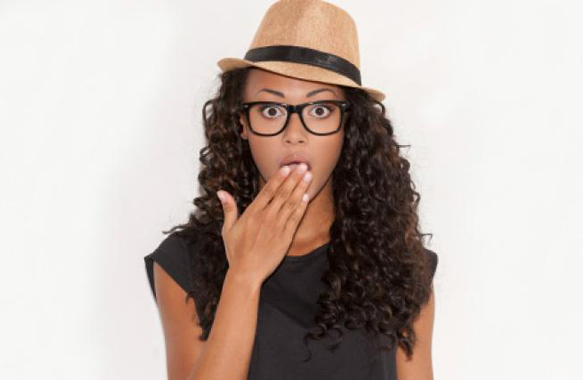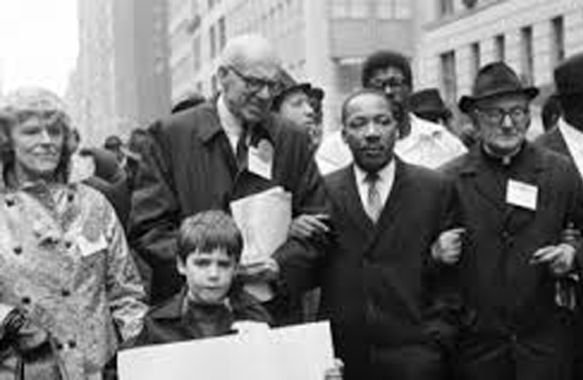Generic image | THINKSTOCK
By The Root Staff | Originally Published at ,/em>The Root. May 15 2014 3:00 AM
Using these common words and phrases with questionable histories just might make you sound like an accidental racist.
These seemingly innocuous terms have questionable origins or histories related to race, and there’s probably plenty more where they came from.
1. “The peanut gallery”: Just a dismissive term for hecklers or critics, right? Wrong. You’ll probably never use this phrase in reference to a group of black people again once you know its history. It originally referred to the balconies of segregated theaters, where African Americans had to sit. (Why “peanut”? Apparently, peanuts were introduced to America during the slave trade and thus became associated with blacks.)
2. “The jig is up”: Although this expression is used today to describe a joke or scheme that has been revealed or foiled, you’re the one whose fun might end quickly if you say it to the wrong person. This hasn’t been proved beyond a doubt, but many believe the saying was used in its original form by some in the American South to refer to the lynching of a black person. Replace “j” with “n” and you’ll get it.
3. “Call a spade a spade”: For more than 500 years, this expression has meant “to tell it like it is.” But it wasn’t until the Harlem Renaissance of the 1920s that “spade” became a disparaging code word for black people. It’s probably best to retire this phrase forever.
Related Read; Recall That Ice Cream Truck Song? We Have Unpleasant News For You
4. “Sold down the river”: Today, if people say they’ve been “sold down the river,” they probably mean they’ve been betrayed. But when the phrase originated, that betrayal was a lot more serious. During slavery, being “sold down the river” was literal. Slave owners would sell their slaves and send them via the Mississippi or Ohio River to plantations in the Deep South, where plantation conditions were much worse.
5. “Eeny, meeny, miny, moe”: Learning the history of this phrase might taint your childhood memories. Heard at playgrounds around the world, this counting-out expression comes from a classic children’s rhyme dating back to the 19th century. Some early versions include the lyric, “Catch a n–ger by the toe.” The n-word was replaced by “tiger” in later years. Not quite as cute now, is it?
6. “Cotton-picking”: “Are you out of your cotton-picking mind?” We’ve all heard the phrase, but the term has an ugly, if debatable, past. Some say it was used to denote the inferior status of poor farmers and field hands in the Southern states, many of whom were slaves. We’ll just say you’d have to be crazy to say this to anyone who might associate it with that history.
7. “Spook”: How can this word be so bad? If you’ve ever celebrated Halloween, you’ve used some version of it. What is now used regularly to mean “ghost” or to frighten is also a slur akin to “n–ger.” It may have its origins in the perception that dark skin blends into the night, making black people ghostlike. Scarily racist.
8. “Grandfather clause”: You may have been lucky enough to be “grandfathered” into your cellphone plan, but this term has an ugly past. During the 1890s, half a dozen Southern states enacted laws to defy the 15th Amendment and prevent black people from exercising their newfound right to vote. In these states, you were allowed to vote only if your parents or grandparents were able to vote before the year 1867—which was conveniently before blacks had access to the ballot. These days we all have equal rights to this phrase, but it’s probably best if we agree to go ahead and drop it.
Like The Root on Facebook. Follow us on Twitter.












Why would you want to ascribe racist undertones to words or phrases that currently have none (if they ever did)? Are there so few real racists that you have to start making them up out of innocent people using innocent words with innocent intentions? Don’t do this to yourself. Life is too short.
Dear Zelda..
I believe that too often we are inured to what causes great harm. I have never thought that “ignorance is bliss.” Indeed, what we do not know hurts us. Epistemology teaches. While we may not be aware of the origin of a word or phrase that does not negate its meaning. Nor does it lessen the impact it has on us, or our communities.
You ask…
I share what might be invisible and is no less insidious. The source is Southern Poverty Law Center, which studies the “hate” [in the extreme] that too often remains “hidden.” Imagine the magnitude of racism that is less extreme. The bar graph alone tells a tale; what occurs when we claim to be colorblind when in actuality, as a society we have been Colormute for eons.
U.S. Hate Groups Top 1,000 |http://sp.lc/1lGDt2Z
Epistemology is the study of knowledge and justified belief. Your “knowledge” of the origins of these phrases is murky at best, so you can have no justified belief that there is any racial meaning attached. Maybe it’s better to rest easier in the knowledge that the racial or racist intent behind these phrases (if there ever was any) has long faded and that most people (except you, apparently) don’t actually think in those terms anymore. That is a good thing.
Also, assuming an innocent person is hateful is an ugly thing to do and an ugly way to live. That in itself is a form of hatred.
Dear Zelda
Epistemology to the epistemologist probably is thought of as a science practiced at a high level of accuracy and exactness. The explanation I read in the article makes sense and we are cautioned to understand that the meaning has evened over the years. The authors suggest that nevertheless it would be a good practice to remember the origin of the phrases and eliminate them because they were and can still be felt (experienced) as harmful to some.
An assumption that you or anyone else might be unaware of the offensive nature of the comment is benign. There is no assumption that you or anyone else is being hateful.
I find it fascinating that not only do you think the previous comment is ugly and hateful in speech but also by extension the Root Staff [the authors] might be.
Learn Glow Grow
Bob